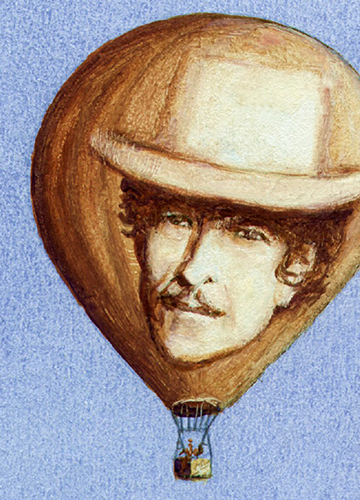I was standing backstage, staring at Bob Dylan while he performed “Like a Rolling Stone,” voted the greatest song of all time. The sound technician handed me something very special: Dylan’s harmonica. When the show was over, my father’s idol approached us. This was it, the moment my dad had been dreaming of. Dylan, who is notoriously standoffish, shook his hand and said, “It’s great to meet you.” Propped up on his walker, my father opened his mouth to talk. He was probably trying to tell Dylan something he had waited his whole life to say. But he only produced a blur of unintelligible words. The illness had taken his speech. My heart raced in a panic to understand him. Here was his big chance to talk to his hero. Yet my father, who had spent his life giving voice to the voiceless, couldn’t speak. Dylan leaned in and put his ear to my father’s mouth, but he still couldn’t understand. He gave my dad a hug and signed an autograph for him. And with that, the event that had kept us all going was over.
That concert was a game of musical chairs. As soon as the music stopped, the game was over. The last fun time my family was able to spend together was both exhilarating and heartbreaking. I watched my dad, a man renowned for his ability to communicate with people, unable to speak when it really mattered.
On May 27, one month after the concert, my mom, my brother and I were gathered around my father’s bed as Dylan’s “Lay, Lady, Lay” played on the stereo. A priest was standing over my dad, reading him his last rites. With Bob Dylan’s music playing softly, my dad faded away.
My connection to Dylan differs from that of my father. My father was a child of the 1960s anti-war era. Dylan, his idol, sang protest songs that energized a generation. They helped shape my father’s view of the world. My generation is also growing up while America is at war, but without anti-war idols or icons of social protest. Instead, our heroes are highly paid sports stars and high-gloss entertainers. Yet Dylan speaks to me in a personal way. When I’m in a good mood, I roll down my windows and drive around with his songs blaring. When I’m in a bad mood, the music is still blasting, only the windows are up and I’m screaming the words out. I found out only after my father’s death that he did the same thing.
It’s about a year and a half since my dad’s death. I’m with a friend and his father at a Bob Dylan concert. It is the first time I’ve seen him perform since his concert for my dad. But I’m not sitting in the front row. I’m not giving a speech before the concert. And I definitely will not meet him afterwards. Now I feel like everyone else in the crowd who is there just to hear some music. But really, I am there because of my dad, because Dylan’s music connects me to him.
I am watching Bob Dylan play the final song of the night, and it is my dad’s favorite of all time: “Like a Rolling Stone.” As Dylan gets to the chorus, I want to cry for the first time in months. The song returns me to that night backstage with my father, only this time Dylan is talking directly to me. He is asking me a very personal question: “How does it feel?” It’s as if he knows the answer.
